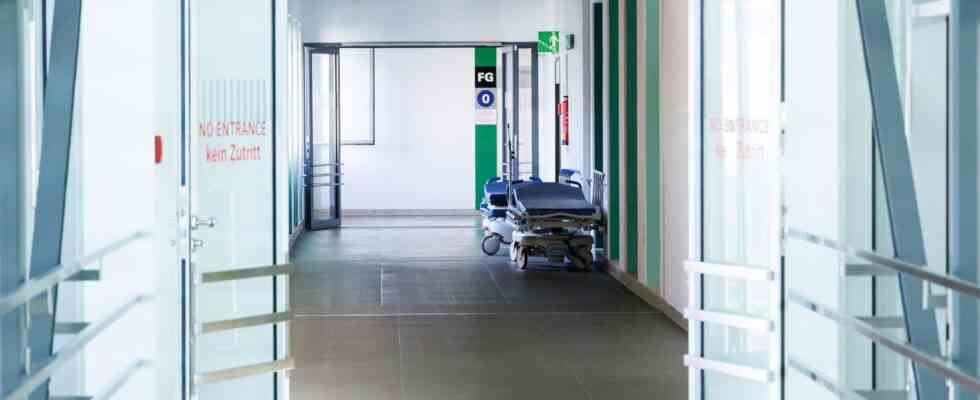As of: 01/17/2023 7:02 p.m
The German Hospital Society warns of numerous insolvencies. The wave of bankruptcies in hospitals is also due to inflation and the energy crisis. Smaller houses in the country are particularly at risk.
Anyone who is already unable to find a family doctor in the village with pain can only go to the emergency room in the nearest hospital. And for that you might have to drive even further in the near future than you already do. Many clinics are facing bankruptcy or are already in the middle of it. They make losses even though they are needed. “These small hospitals in the region are important. They are much more flexible and faster,” says Jeanette Birkmeier in Linnich. The patient had hip surgery here. She appreciates the small clinic near her and hopes that the clinic will be saved.
Small houses don’t stand a chance
But the Catholic Nordkreis clinics Linnich and Jülich had to file for bankruptcy in November 2022 – due to impending insolvency. Now the company is to be renovated. “If you were to go to the Cologne or Wuppertal area, the supply is guaranteed there. But you have to wait a long time for appointments and the processes are very complicated. That involves a lot of bureaucracy and travel,” says Birkmeier. The house in Linnich only has 196 beds, 70 percent of which are occupied on average.
Linnich and Jülich are two examples of the state of the healthcare system – two primary care providers that have been making losses for years. The wearer didn’t want to catch it anymore. Small hospitals without specialization have no chance in this system of hospital financing, says Mark Boddenberg. The insolvency administrator takes care of the case. “Basic and standard providers with fewer than 250 beds cannot be operated economically in this system. It simply does not work,” says Boddenberg. “If general conditions such as the energy and corona crises make processes more difficult and more expensive, then that’s like a fire accelerator. That’s exactly how it was here.”
The wages and salaries of the 680 employees at both clinics are secured by the insolvency money from the Federal Employment Agency. As smaller hospitals with a smaller range of medical services, both hospitals have significant competitive disadvantages compared to their larger competitors. Boddenberg urges hurry up with the political reforms.
Declining revenue
While there is a political struggle for future concepts, the plight of many clinics is getting worse. According to a recent survey, more than half of the clinics nationwide expect their situation to deteriorate. Only 17 percent assume that things will get better.
According to health economist Boris Augurzky, this is not only due to the explosion in costs, but also to falling income. It can be assumed that 2023 will be a difficult year for hospitals because aid programs from the Corona period are expiring, says the health economist from Leibniz Institute for Economic Research in Essen. “That may sound surprising, but we have fewer hospital cases at the moment,” says Augurzky. “This is also due to the staff shortage, because we can no longer treat so many people. This means that hospitals also have less revenue. That causes big problems for many.”
The German Hospital Society is also warning of a wave of bankruptcies as early as the second half of 2023. “We run the risk that ten to 20 percent of hospitals will then have to file for bankruptcy,” the company says. After that, inflation and a fall in the number of cases would lead to a structural deficit of 15 billion euros by the end of the year. And the association of municipal hospitals also expects up to 100 hospital insolvencies in 2023 alone.
Fire letter to politics
Doctors’ representatives have therefore written a fire letter to politicians. Short-term help is necessary, despite the planned long-term hospital reforms. “The hospitals will have to rebuild and restructure,” says Hans-Albert Gehle, first chairman of the Marburg Association of North Rhine-Westphalia.
“Hospitals need money to do that. But they often have debt and no longer have positive financial results. Where is the money supposed to come from?” Whether and how the hospital in Linnich will continue is still completely open. The renovation will also cost money. That’s what the country is asking for. But here, too, there are still no concrete commitments.

